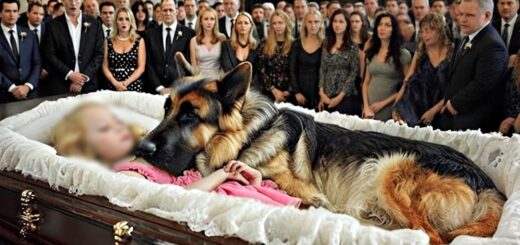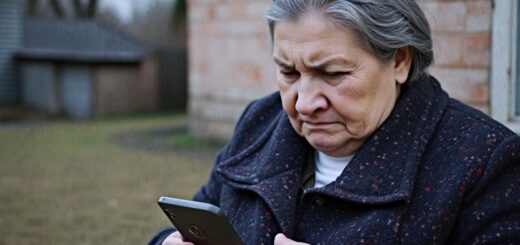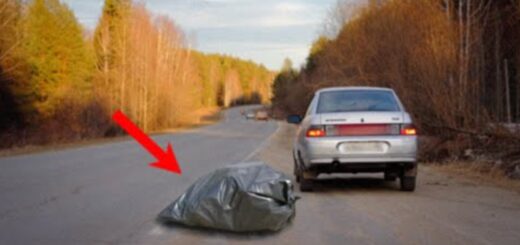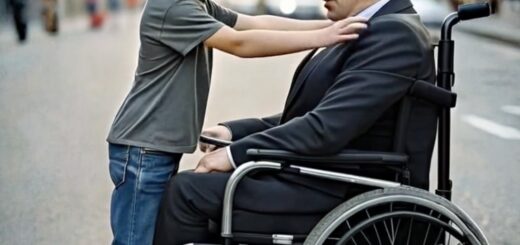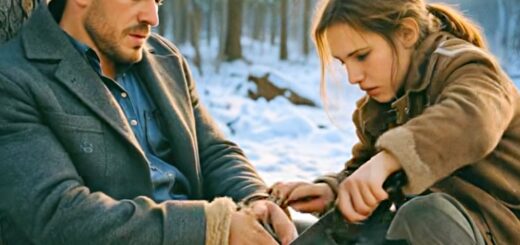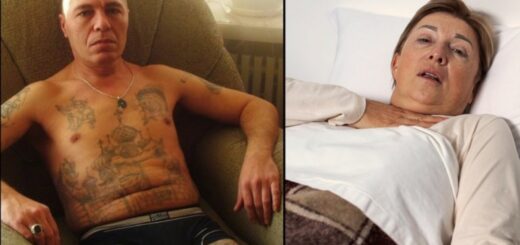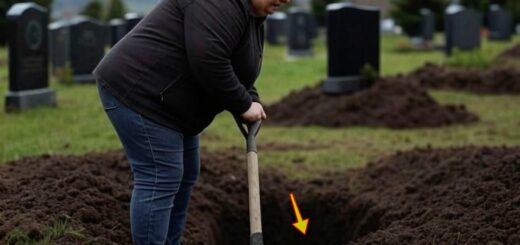A terminally ill millionaire woman wandered through a winter park, and upon seeing a freezing man with a child on a bench, she took them home…
And in that silent exchange was a whole world: with past, fears, hopes. And behind the wall slept a boy who again began to dream not of snow and cold, but of school, friends, and big sneakers he’d grow into. In the hallway, the light flickered, a slight power surge, like a heart spasm in an old house.
Emily, standing by the window with phone in hand, glanced mechanically at the ceiling but immediately looked away. It wasn’t the electrician worrying her now. On the phone screen flashed a message from her old acquaintance, a lawyer with access to registry archives.
The answer was short, almost dry, but it squeezed her chest. David Michael Smith. Born in 1983.
Mother, Smith Anna Elizabeth. Connection to your grandmother on father’s side confirmed. Second cousin.
The world didn’t collapse. But swayed. As if what she felt subconsciously—his gaze, his gestures, even voice timbre—suddenly took shape.
He, her family. Distant, almost stranger, but still. Blood.
And somehow it became scary. Because if he finds out, everything changes. Maybe he’ll leave.
Or stay, but not the same. And for now, he was just David. A person she helped.
And who, strangely, helped her return to life. The documents were delayed. Despite connections, speeding it up didn’t work as fast as wanted.
Bureaucracy, like a living organism, resisted interference. At some point, there was even suspicion someone was deliberately sabotaging. David was nervous, called, wrote, went to the immigration service himself, without escort, though Emily offered to send an assistant.
I have to do this myself, he replied stubbornly. It’s my duty. Sometimes he returned irritated, gloomy, silent.
On such evenings, Ethan sat next to him, pressed his shoulder, and David started telling stories. Not about miracles, not about heroes, but about how a stubborn tractor driver in one village didn’t let a snowstorm swallow the whole settlement. Or how a builder saved a kitten from the fifth floor.
These tales were simple, almost everyday, but in them someone always saved, not because they had to, but because they couldn’t otherwise. Emily on such evenings watched them from the shadows. And felt something inside her kindling, making her want to cry and laugh.
And then cry again. David became not just close to her. He seemed to pull out of her the part she had buried even before forty, when she decided being strong was more important than being alive.
When the documents were finally ready, and David got his ID, Ethan’s birth certificate, and temporary registration, he returned home looking like he’d won a marathon. His eyes burned with determination, his shoulders had a springy straight line, voice louder. We did it, he announced at the threshold.
All set, Ethan goes to school. Tomorrow I’ll submit the application. And me—I’m ready for work.
Emily listened as he spoke, as he smiled, and a thought formed in her head that had been brewing the last days. I have a proposal for you, she said when Ethan ran to the kitchen for pastries. I want you to try yourself with us.
In the supply department. Problem area. But I’m sure you’ll handle it.
David froze. In your company? Yes. I already said, you’re the one who knows reality, not just its presentations.
We need such a person. And don’t think it’s mercy. It’s benefit.
Mutual. He looked at her and for the first time didn’t see a benefactor. Saw a partner.
Equal. Thank you, he said quietly. I won’t let you down.
The first day at the new job was for David almost like a parachute jump. He entered the office where everyone knew each other, and they looked at him as an outsider. Came through connections, read in the gazes.
But he didn’t let it break him. From the first minutes, he dove in, studied contracts, compared prices, reviewed old supply schemes. By the second day, he suggested optimizing one route, saving the company tens of thousands.
In a week, he established dialogue with a crew missing deadlines. With each day, he felt more confident in place. And with each day, Ethan became happier.
He made friends in class, a favorite teacher, even a robotics club. In the evenings, he told with fervor how he assembled a programmable car, and David listened with pride, as if it were a satellite launch. Emily, meanwhile, withdrew deeper into herself more often.
Outwardly—calm, work, smile. But mornings became hard to get up. Sometimes with sharp movement, darkness before eyes.
Her medical file lay in the top drawer, but she didn’t open it, as if the paper could destroy the illusion that everything was normal. David saw her paling. Once he even suggested.
Maybe you should rest? I’ll manage. She waved it off. While there’s strength, need to live.
Later will be too late. He didn’t understand. But remembered the phrase.
One evening, when Ethan was asleep, David entered the library. Emily sat with a glass of wine, staring into the fireplace. Thank you, he said.
For everything. Not just the job. For giving us life back…



